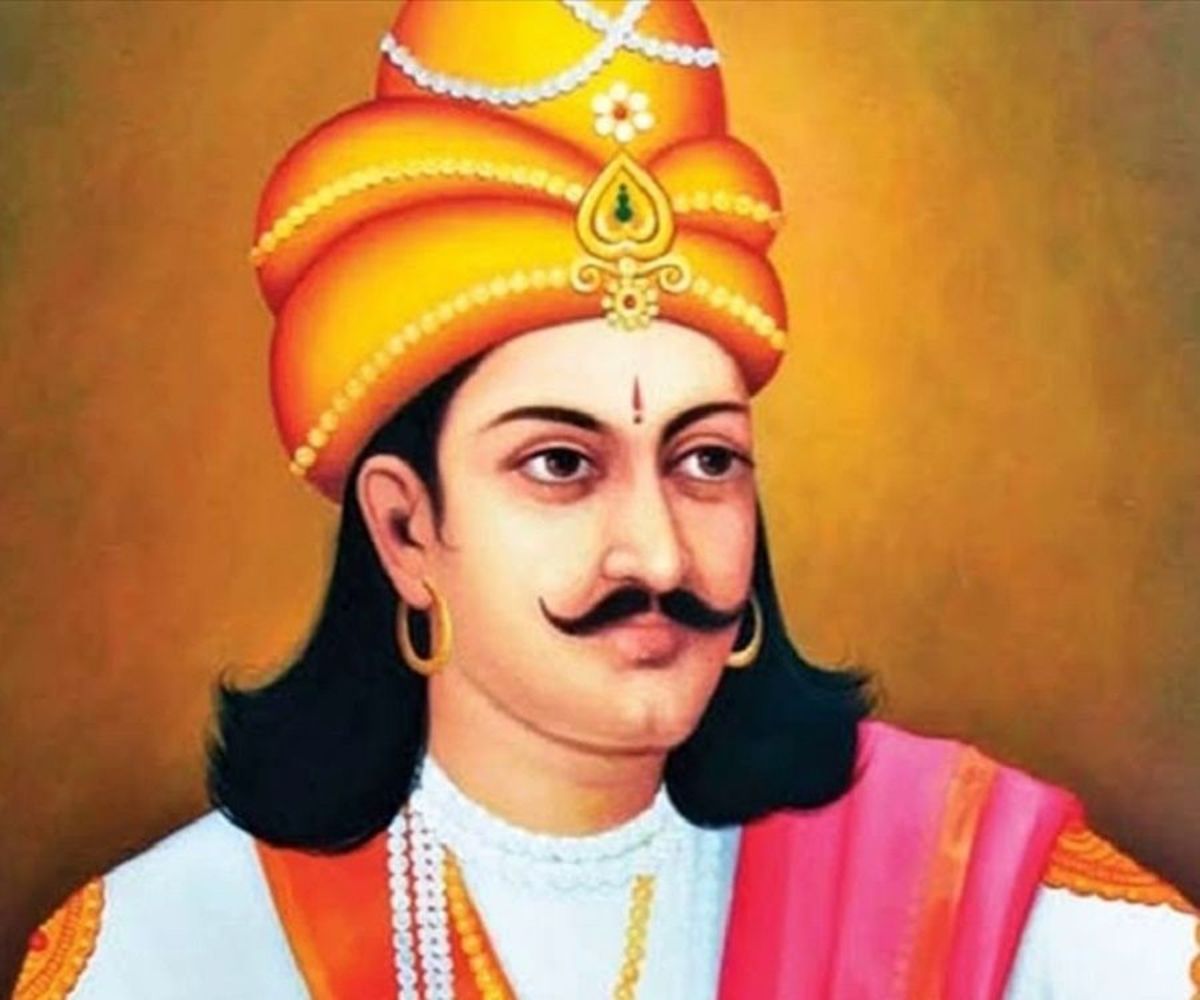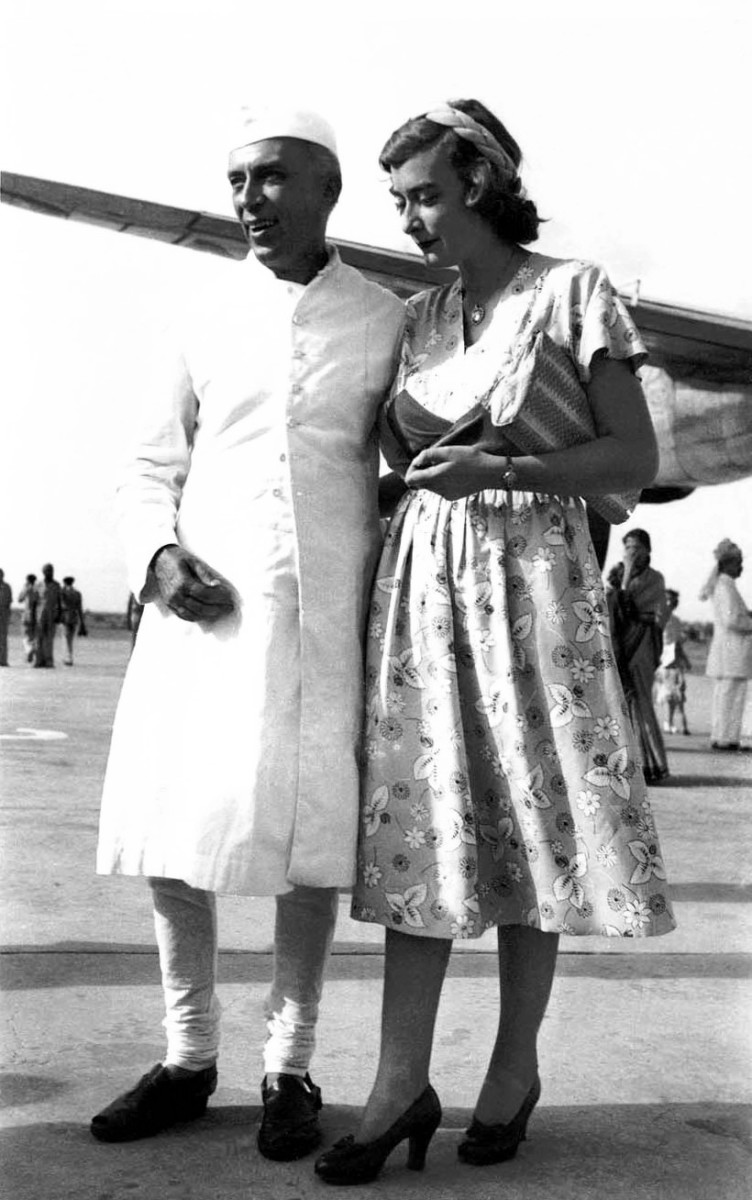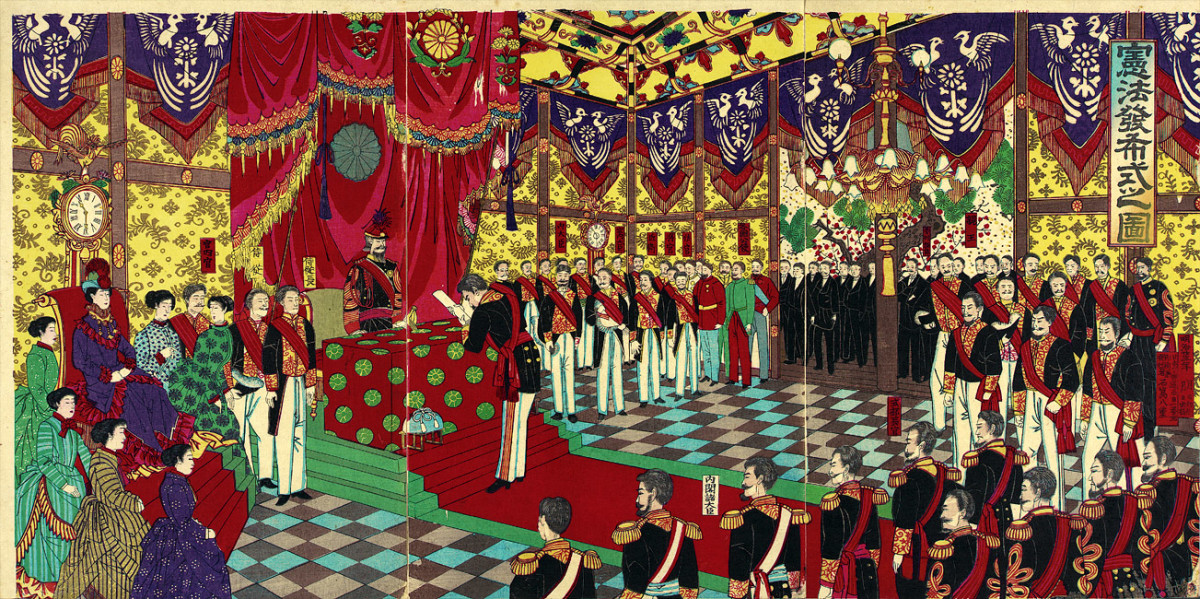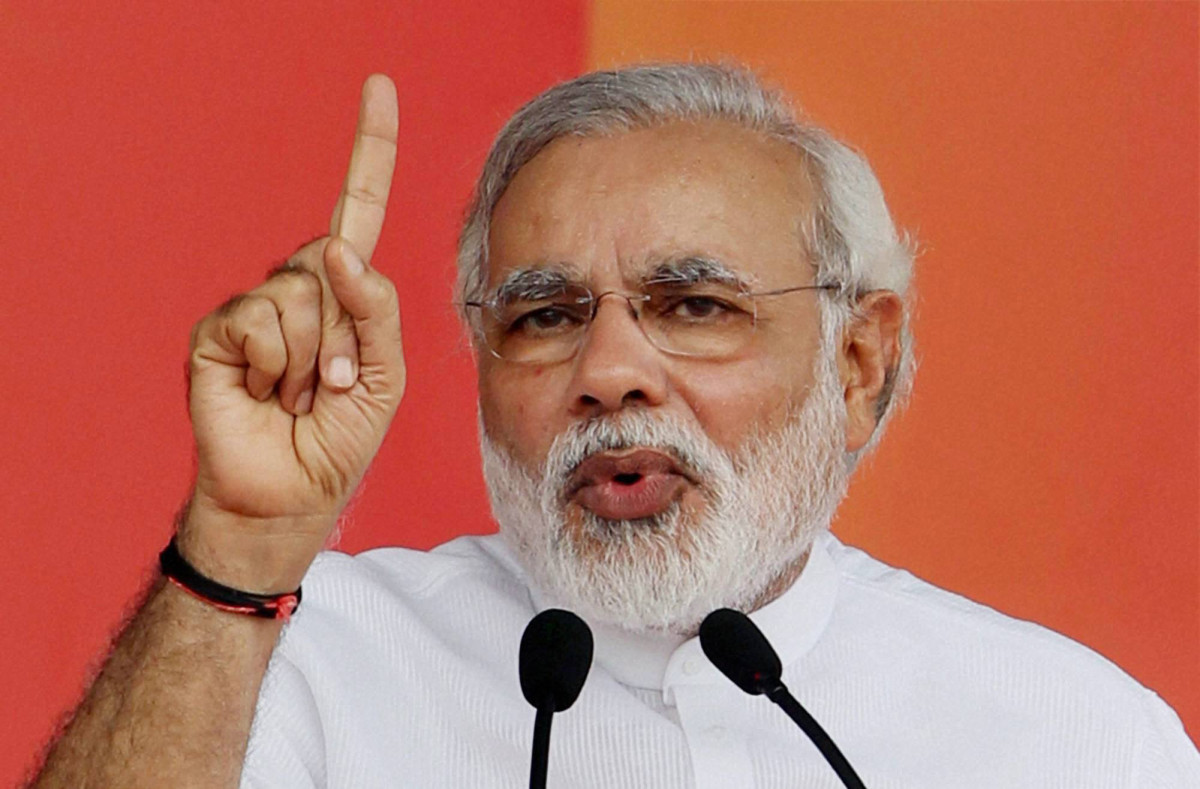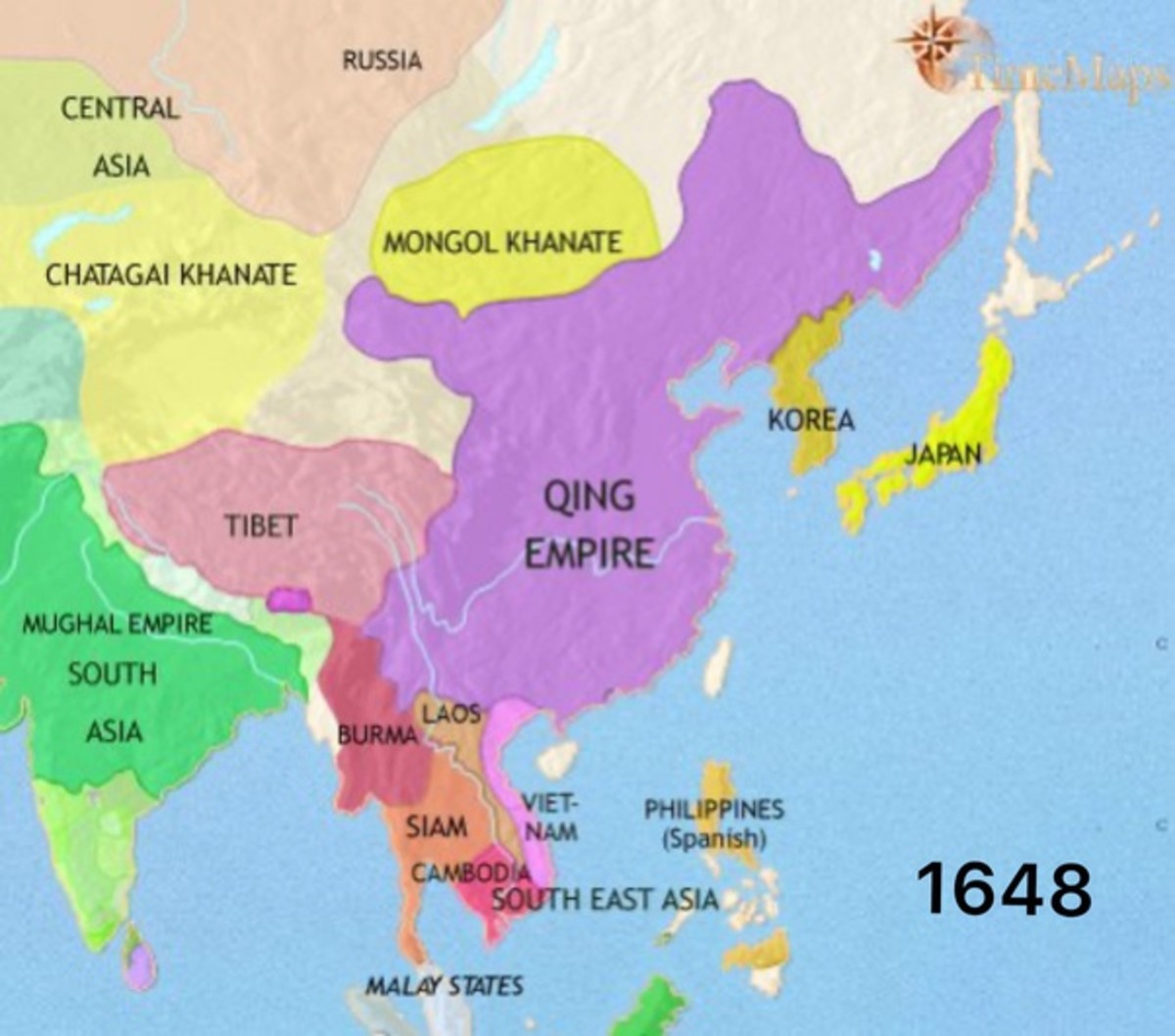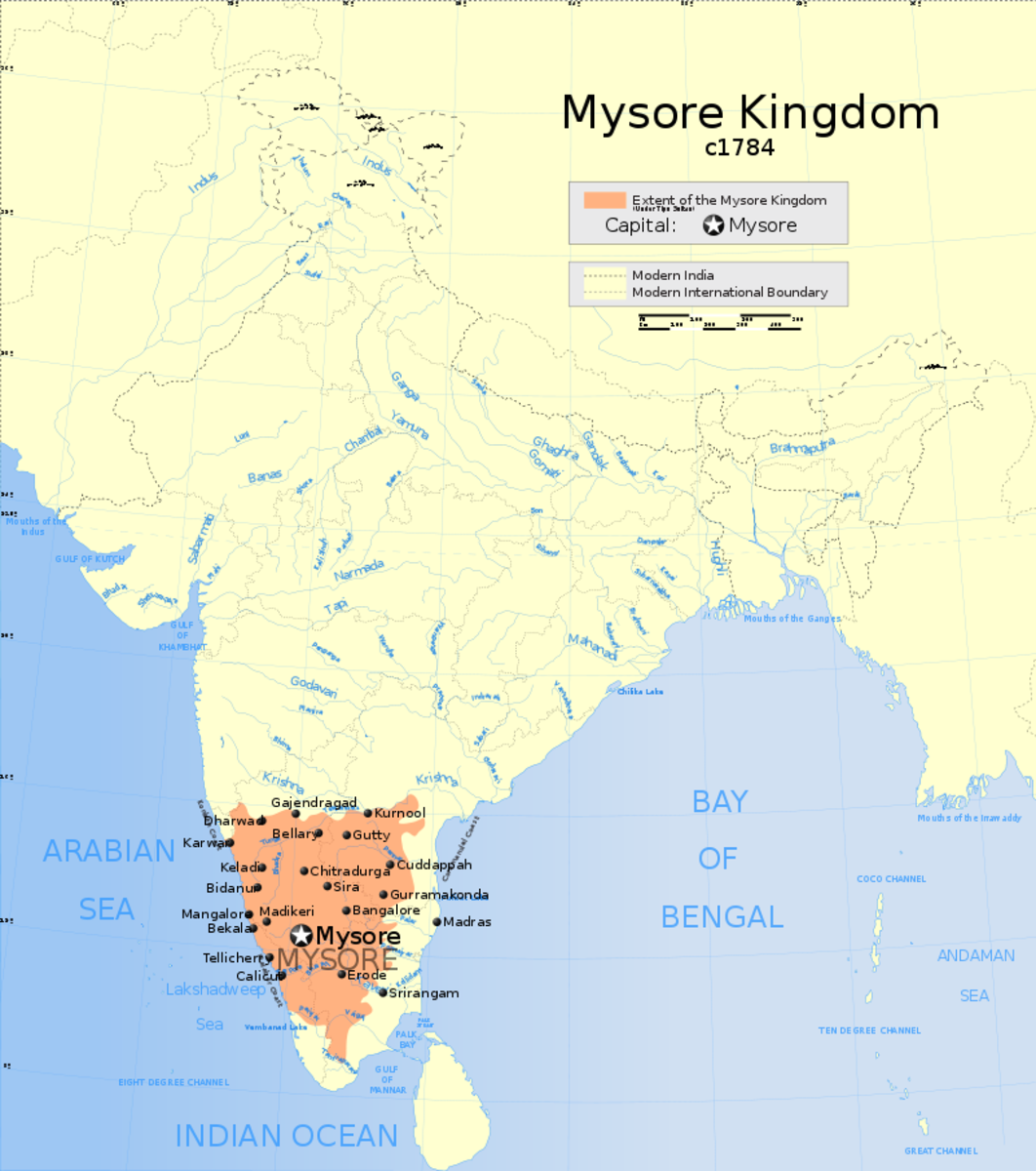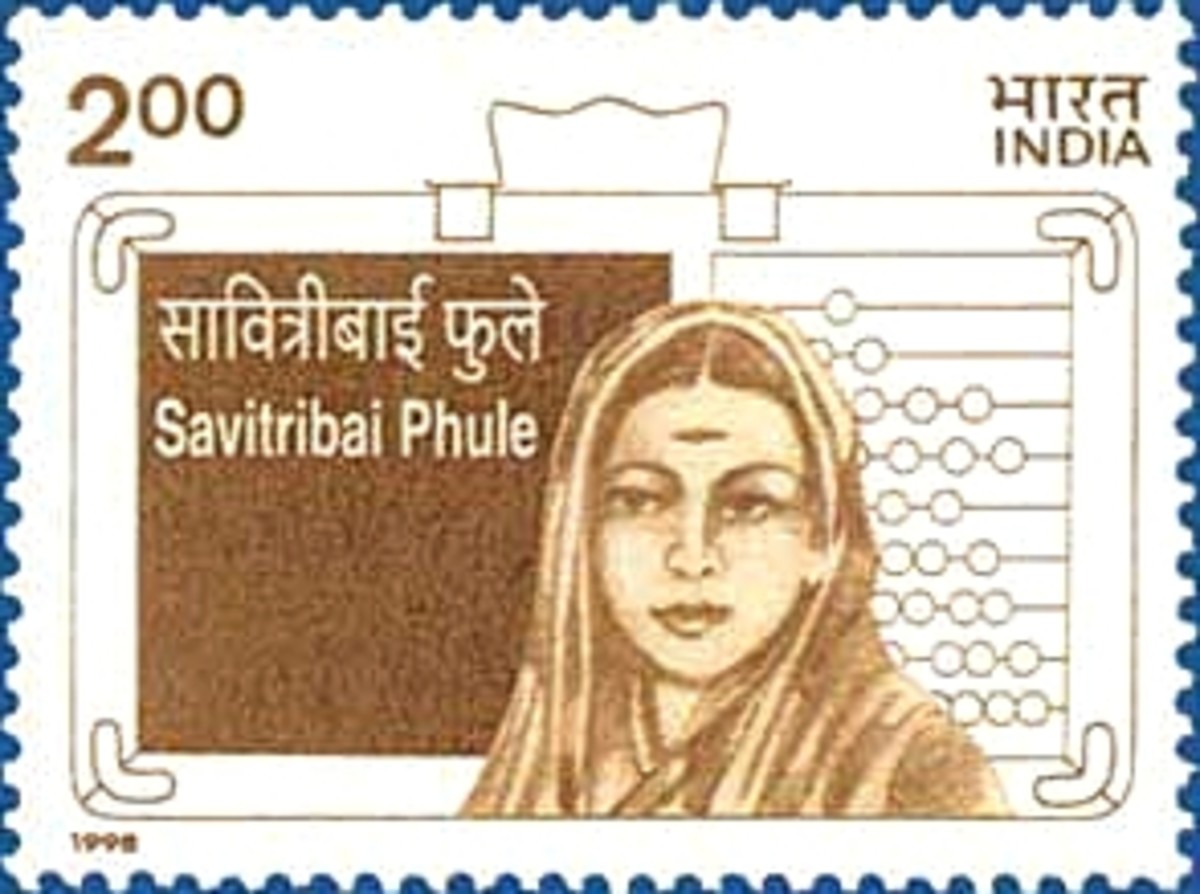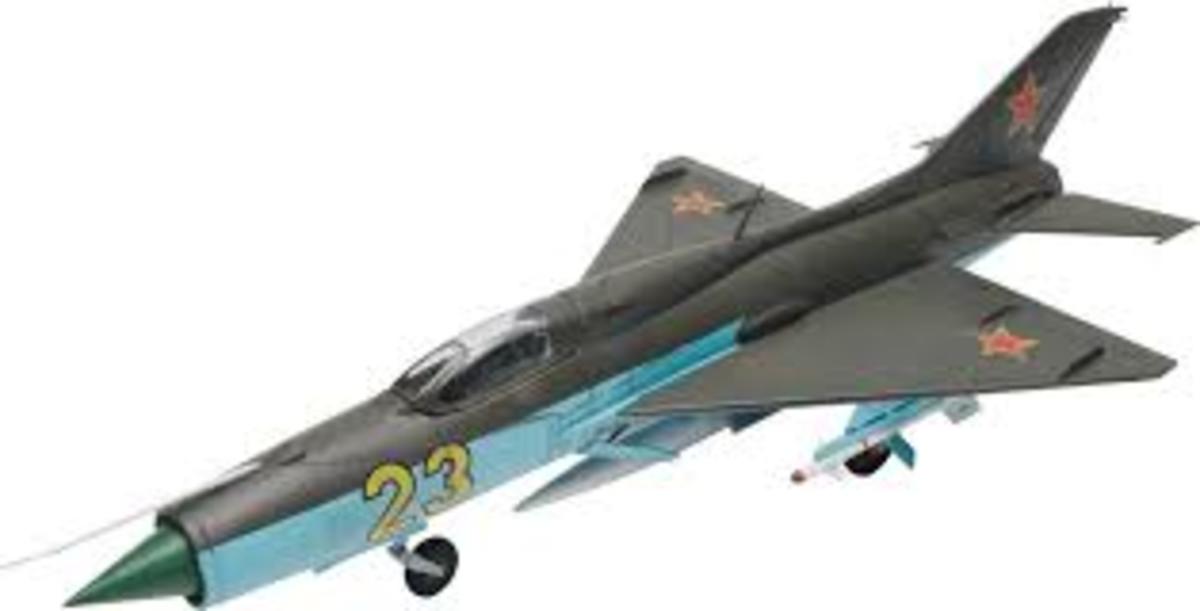- HubPages»
- Education and Science»
- History & Archaeology»
- History of Asia
Comparing Modi With Nehru:can Modi Learn From the Mistakes of Nehru
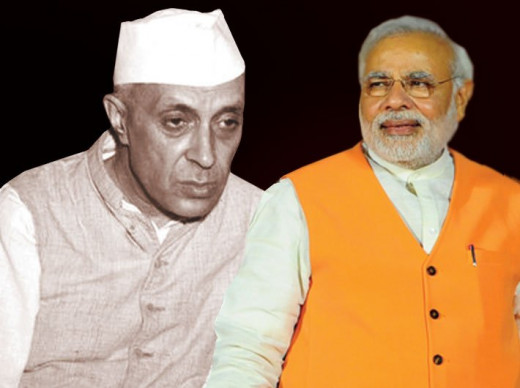
Nehru and Modi
Before I write anything it is best to understand the background of the lives of Nehru and Modi. Nehru was born in 1889 into a privileged household. His father Motilal Nehru was an affluent man and he could afford to send his son for schooling to Harrow in England. His schooling over, Nehru enrolled in Cambridge University and got his degree. His father insisted on his studying to become a lawyer and he duly completed his law degree and was called to the bar in 1912. Motilal Nehru was himself a political leader in his own right as well as the President of the Congress party. On Nehru's return to India, he handed over the mantle of grooming him as a leader to Gandhi.
For the next almost 35 years he was the disciple of Gandhi who took a great liking to him and groomed him to lead the Congress party. Nehru remained in Gandhi's shadow during the freedom movement and came into his own only after Gandhi was assassinated in 1948.
Nehru while in England had been greatly enamored of the Fabian society and the way Lenin and Stalin had developed the Soviet Union. He accepted the communist doctrine as far as economics is concerned but he was not happy with any totalitarian concept. This was reflected in his approach after he became prime minister of India in 1947 when he tried to amalgamate the economic miracle of Soviet Russia with the democracy prevalent in England. In this, he failed because the two systems cannot be integrated and the net result was that he did bring about democracy but also brought in the license- permit raj that completely stymied economic progress in India.
Nehru was an erudite man, more the philosopher than the political leader. He had excellent command over the English language and wrote the 'Discovery of India.'
Nehru with this association of almost 3 decades plus with Gandhi imbibed the principle of nonviolence. He assumed that this would be the new mantra in the world, not realizing that nonviolence has no place in world history. It may be applicable in personal life but nations cannot follow the path of nonviolence.
Nehru was prime minister for 17 years from 1947 to 64 and this is the period which is now being fiercely debated by scholars.
Narendra Modi on the other hand came from very humble origins. He was not an affluent man and, he climbed the ladder by his ability. Modi joined the Rashtriya Swayamsevak Sangh at a very early age and dedicated his life to this organization. He became a Pracharak and traveled the length and breadth of the country in service of the RSS.
Nehru was a liberal but in contrast, Modi was a staunch believer in Hindutva. The policy of Hindutva is the cornerstone of the RSS. Hindutva ("Hinduness") is the predominant form of Hindu nationalism in India. The term was popularised by Vinayak Damodar Savarkar in 1923.
Modi served as a loyal foot soldier of the Sangh and his hard work bore fruit. He was nominated by the RSS to become the chief minister of Gujarat. As the chief minister of Gujarat, he brought in many changes in both economics and administration and people in India began to take notice of him. Eminent industrialists like Ratan Tata and Mukesh Ambani and endorsed him and Modi's star began to shine. Subsequently, at the 2013 conclave of the BJP at Goa, Modi was able to dethrone Lal Krishan Advani and become the leader of the BJP and its prime ministerial face in the coming 2014.
Modi led the BJP with elan and fervor and was able to bring forth the message of the revival of Hinduism in a modern context. He created history when he won the 2014 election with an absolute majority, a thing which has not happened for the last 30 years.
Nehru and Modi were two different sides of two different coins. Modi came to power insinuating that Nehru had failed as a leader and he would rectify all the perceived mistakes which he had committed. As a sop to the masses, he coined the phrase 'Sabka Saath Sab Ka Vikas 'meaning 'all be together for economic progress.'
Modi is not an intellectual like Nehru but a more down-to-earth leader.
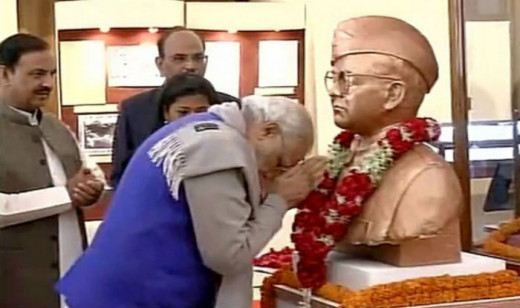
Nehru and Geo- political vision
Nehru had been prime minister for over five years when the first general election was held in 1952. Earlier during the period of the Raj, he had also been interim prime minister. Nehru won two more elections in 57 and 62. In these elections, Nehru won handsomely but there were undercurrents of opposition to him in the Congress party. The seeds of this opposition can be traced to the manipulation by Gandhi and Nehru's acquiescence during the selection of the leader of the Congress party in 1947. Many feel that Gandhi's selection of Nehru was a manipulation that does not do justice to Gandhi.
There are two books which have hit the stands recently on the subject. The first book "Unsung architect of modern India " by the daughter of VP Menon who was the chief Secretary during 1947-48. The second book is by noted journalist MJ Akbar titled, "Gandhi's Hinduism the struggle against Jinnah's Islam." Both these bring out some unsavory facts about Nehru and suggest that Sardar Vallabhbhai Patel was sidelined by manipulation. This point is important because there were a sizeable number of people who were opposed to Nehru and Nehru could not completely crush them. Thus when Chinese Prime Minister Chou-En-Lai came to Delhi in 1960 with a proposal for a border settlement Nehru and Krishna Menon the Defence minister though inclined was unable to accept it because of the opposition to him in the cabinet.
Another point that is worth consideration is Nehru's concept of political power and his concept of the military as a source of political power. In this, he disregarded the great Hindu leaders of the past like Chandragupta Maurya and his philosopher guide Kautilya and lionized Ashoka more. Ashoka as we know was a pacifist and the result was that within 60 years of his death the Empire of Emperor Ashoka collapsed.
His stress on Asoka resulted in his keeping the Indian Army in the First World War age. They continued to use the Lee Enfield .303 rifle and modernization of weapons and motivation to fight a war was absent.
Another reason for Nehru to downgrade the Indian military was his fear of a military coup d'etat. When General Ayub Khan in Pakistan and General Ne Win in Burma seized power he felt underconfident and visualized an Indian army takeover. Matters were not helped by General K Thimmiya Army chief of staff who opposed Nehru on promotions and strategy. The Army chief had opposed the promotion of Nehru's cousin, Major General Kaul, to Lieutenant-General as he felt he was not competent. Nehru had his way and General Kaul was appointed GOC 4 Div which suffered a catastrophic defeat at the hands of China and Kaul himself landed in the hospital.
Nehru's concept of global strategy must be severely faulted. He was interested in becoming a world leader and accordingly launched the non-aligned movement NAM. He was extremely naive in his dealings with China. In 1955 the first NAM meeting was held at Bandung. It was Pandit Nehru who has escorted the Chinese Prime Minister Chou and introduced him to all the other leaders of the non-aligned movement. Earlier in 1950 when China invaded Tibet he did not militarily intervene despite many requests by the Dalai Lama. In hindsight, one can see how wrong Nehru was to have ignored the Chinese occupation of Tibet and trying to befriend China at every stage.
Events now cascaded and led to the 1962 war with China. This also appears to be his undoing. Nehru was under intense pressure in Parliament and also from opponents within his party who were egging him to take on China and get Aksai Chin vacated. Without having prepared the army for combat and with no strategy he simply asked the army chief to throw the Chinese out. He made this statement in October 1962 at the Delhi international airport while proceeding on a visit to Sri Lanka.
We all know what happened as an unprepared Indian Army began to make plans to throw the Chinese out without any buildup of troops and tanks. The Chinese attacked and India had to cut a sorry figure. Nehru's prestige plummeted and to his chagrin, not a single country supported India except for the USA and Israel.
Nehru died in 1964 a broken man. In hindsight, we can see that Pandit Jawaharlal Nehru inherited a developed country that was much ahead of China where not even a bicycle was made. By the time of his death, India had been reduced to a 2nd fiddle to China in Asia.
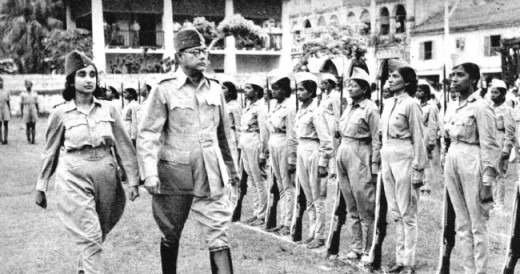
Lessons for Modi
Narendra Modi took over as Prime Minister of India in 2014 and again won the election in 2019. There is every chance that he will emulate Nehru as he will most likely win the 2024 election as well.
Modi discarded the Nehru- Gandhi concept of pacifism and took a lesson from Indian warrior kings like Chandragupta and BinduSara. One lesson which Modi needs to learn is that no leader can be successful if he does not have complete control over the party. Nehru suffered as he had never complete control over the Congress party because he had come into power through a manipulation process. The case of Modi is different and at the moment he is the only man who matters in the cabinet in the BJP. The opposition has been reduced to a whimper and he has presented an image to the Indian people of a strong and macho leader. Modi has to ensure that he retains hold on both the party and the RSS in case he is to take India forward. In case he has control over both these entities then he will be able to make decisions and even have a border settlement with China.
Modi can be faulted on his dealing with China. He suffered the same delusion as Pandit Nehru that India could be friends with China and pandered to Chinese susceptibility by not commenting on Tibet and Hong Kong and trying to cage the Dalai Lama from making statements against China. He met the Chinese leader President Xi 19 times in the last six years and maybe he thought that he had a measure of the Chinese.
This was a failure of his policy as China at every stage began to oppose India, be it in the Security Council where it raises the Kashmir issue or Membership of the nuclear supplier's group or permanent membership of the Security Council and acceptance of Kashmir as a part of India. China also intruded in strength in Ladakh and laid claim to vast tracts of territory in Arunachal Pradesh as well.
It is to the credit of Modi that he quickly changed course and realized that China could not be trusted. Unlike Nehru Modi had built up the Armed Forces to a great extent. He had also streamlined the command and control by the creation of the Chief of Defence Staff post. He gave carte blanche to the army to repel the Chinese incursions.
In the border clash, the Chinese got a bloody nose. They lost over 40 dead and hundreds injured to 20 Indian dead. The important thing was that he called the bluff of China. Unlike in 1962 when only the USA and Israel supported India, this time all the major powers of the world from Japan to France and the USA to Germany including Southeast Asia came on the Indian side.
Modi however needs to widen his political horizon and take in the geopolitical power structure. Hopefully, he would have realized that the bigger danger to India is not from Pakistan but from China
The biggest takeaway which Modi should learn from Nehru is not to neglect the military. He must tighten his grip on the party and the RSS and at the same time give no quarter to his political opponents. Modi appears on the right track but the entire region is now a hotbed of intrigue and tension. Modi had to effectively jettison the concept of Gandhi of nonviolence and take his cue and inspiration from the great wartime leader Subhas Chandra Bose who led the Indian National Army during World War II. At that time Bose made friends with Hitler and Tojo as he said, "I will shake hands with the devil to free India."

